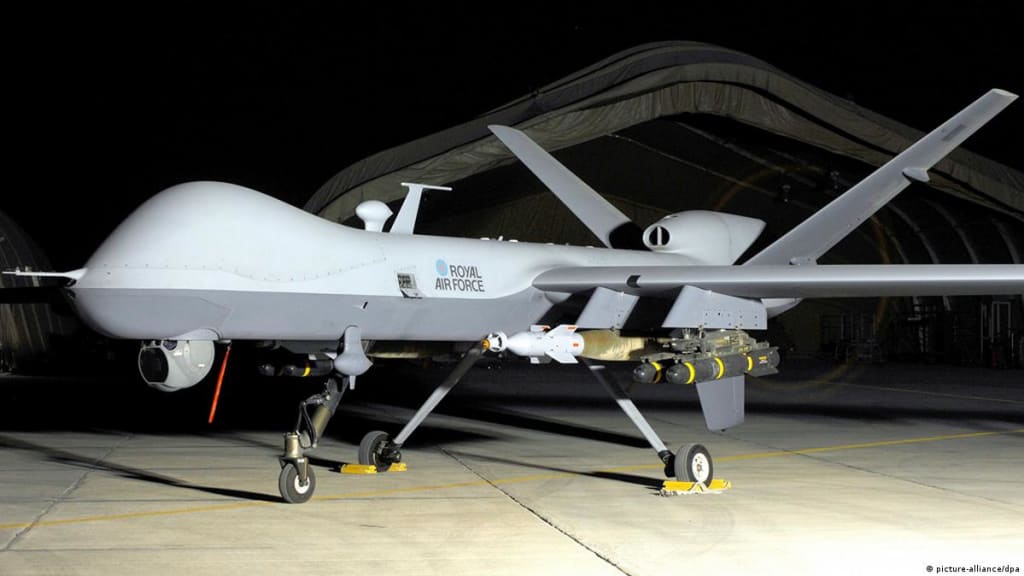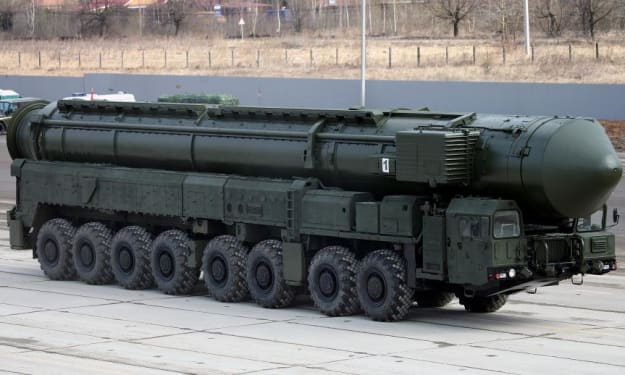
The MQ-9 Reaper Drone: An Unmanned Aerial System Revolutionizing Military Operations
The MQ-9 Reaper drone, developed by General Atomics Aeronautical Systems, is an unmanned aerial system (UAS) that has been widely used by the United States military and its allies in recent years. Originally designed as a successor to the earlier MQ-1 Predator, the MQ-9 is a larger, more powerful drone that is capable of flying higher, faster, and longer than its predecessor. With its advanced sensors and targeting systems, the MQ-9 has proven to be a game-changer in modern warfare.
The MQ-9 Reaper is a remotely piloted aircraft that can be controlled from anywhere in the world. Its primary role is to provide persistent intelligence, surveillance, and reconnaissance (ISR) capabilities to military commanders on the ground. Equipped with a variety of sensors and cameras, including electro-optical and infrared sensors, synthetic aperture radar, and a laser rangefinder, the MQ-9 can provide real-time video feeds and other data to military personnel in near real-time.
In addition to its ISR capabilities, the MQ-9 can also be armed with a variety of weapons, including Hellfire missiles, GBU-12 Paveway II laser-guided bombs, and GBU-38 Joint Direct Attack Munitions (JDAMs). This makes the MQ-9 a formidable weapon in its own right, capable of striking targets with pinpoint accuracy from high altitude.
One of the key advantages of the MQ-9 Reaper drone is its endurance. With a maximum flight time of over 27 hours, the MQ-9 can stay aloft for longer than most other military aircraft. This means that it can provide continuous surveillance and support to ground troops for extended periods of time, without needing to return to base for refueling or maintenance. This capability has been particularly valuable in counterterrorism operations in remote or inaccessible areas, where traditional manned aircraft may not be able to operate effectively.
The MQ-9 Reaper has been used extensively in a number of conflicts around the world, including in Afghanistan, Iraq, and Syria. In these operations, the MQ-9 has proven to be a highly effective tool for targeting and neutralizing enemy forces, as well as for providing critical intelligence and support to ground troops. Its long endurance and advanced sensor systems have allowed military commanders to track enemy movements, identify potential threats, and respond quickly to changing situations on the ground.
Despite its many advantages, the MQ-9 Reaper has also been the subject of controversy and criticism. Some have raised concerns about the ethics of using unmanned systems to conduct military operations, arguing that they can make it too easy for decision-makers to resort to violence without fully considering the consequences. Others have raised concerns about the potential for these systems to be hacked or otherwise compromised, leading to unintended consequences or even accidents.
To address these concerns, the U.S. military has implemented strict protocols and guidelines for the use of unmanned systems like the MQ-9 Reaper. These guidelines emphasize the importance of minimizing civilian casualties and avoiding unnecessary harm to non-combatants, and require operators to follow strict rules of engagement when using armed drones in combat.
Despite these concerns, the MQ-9 Reaper drone remains a highly valuable tool for military commanders around the world. Its advanced sensors and targeting systems, combined with its long endurance and flexibility, make it a highly effective tool for conducting a wide range of military operations. As unmanned systems continue to evolve and become more advanced, it is likely that we will see even more widespread use of drones like the MQ-9 in the years to come.
In addition to military operations, the MQ-9 Reaper has also been used in a number of non-military applications. For example, the drone has been used by U.S. Customs and Border Protection to monitor the U.S.-Mexico border, providing surveillance and reconnaissance capabilities to help identify and track potential security threats.
The MQ-9 has also been used in disaster relief efforts, providing critical information and support to emergency responders in the aftermath of natural disasters such as hurricanes and wildfires. The drone's advanced sensor systems and long endurance make it well-suited to these types of operations, allowing responders to quickly assess damage and identify areas in need of assistance.
Looking to the future, the MQ-9 Reaper drone is likely to continue playing an important role in military and civilian applications alike. As technology continues to advance, it is likely that we will see even more advanced unmanned systems capable of performing an ever-widening range of tasks. However, the ethical and legal questions surrounding the use of unmanned systems like the MQ-9 will continue to be a topic of debate and discussion, as policymakers and the public grapple with the implications of this rapidly-evolving technology.
Another area of development for the MQ-9 Reaper and other unmanned systems is in the realm of artificial intelligence (AI). As AI technology continues to advance, there is increasing interest in using these systems to automate certain tasks that are currently performed by human operators. For example, AI systems could be used to help identify potential targets or to control the drone's flight path, freeing up human operators to focus on more complex tasks.
However, the use of AI in military operations also raises a number of ethical and legal concerns. For example, there are questions about how to ensure that AI systems are programmed to adhere to international humanitarian law and other legal standards. There are also concerns about how to ensure that these systems are transparent and accountable, and that human operators maintain appropriate levels of oversight and control over the technology.
Despite these challenges, there is little doubt that unmanned systems like the MQ-9 Reaper drone will continue to play an important role in military and civilian applications. As technology continues to advance, it is likely that we will see even more advanced and capable unmanned systems, with greater flexibility, endurance, and autonomy. However, it is also important to ensure that the development and use of these systems is guided by ethical principles and legal standards, to ensure that they are used in ways that promote peace, security, and human welfare.
About the Creator
Mohamed Ahsan
As a child, I always had a passion for words and storytelling. I would spend hours lost in the pages of my favorite books, dreaming of one day becoming a famous writer myself. After years of hard work and perseverance, that dream finally






Comments
There are no comments for this story
Be the first to respond and start the conversation.